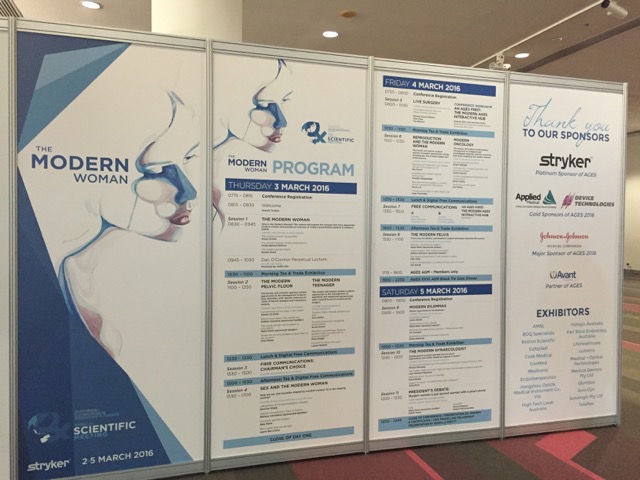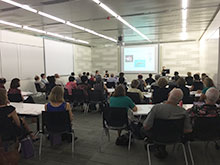The last couple of weeks have been busy with educational activities and I have thoroughly enjoyed participating in these events.
Recently, I was privileged to present at a fantastic GP education evening organised by Greenslopes Private Hospital. About 50 local GPs attended this evening, and I, along with 2 other presenters, talked about the management of common gynaecological conditions, such as fibroids, endometriosis and ovarian cysts. It was great to meet some of my referring practitioners and be involved in an interesting and interactive educational evening. Prior to the event, with the support of Greenslopes Private Hospital, I also recorded a short introductory video that was posted to youtube. A link to the video is at the bottom of this post.
Last week I attended the AGES conference (Australasian Gynaecological Endoscopy and Surgery Society) of which the focus topic was ‘The Modern Woman’. There were many fantastic local and international speakers talking about the expectations of and challenges facing women today, and how practitioners can help women with their concerns.
At the conference, Professor Judith Goh helped me to realise the importance of retaining perspective, with her lecture about her work in Africa helping women with genito-urinary fistulas. For these women, without reliable access to healthcare or the basics, such as running water and electricity, simply surviving pregnancy and childbirth is a major challenge. This certainly made me grateful for the services and healthcare we often take for granted in Australia. Professor Goh’s work to help these women is inspirational.
At the AGES conference, I had the opportunity to present research I had completed in Sydney on use of the MyoSure device for removal of endometrial pathology such as fibroids and polyps. I was both surprised and delighted when I won the award for best oral communication.
Maintaining current and relevant knowledge to help guide patient care is essential for all practitioners, and these 2 events were an enjoyable way to keep myself up to date, and also help my local GPs manage the gynaecological questions and issues posed by their patients.
At GAALS we are focused on providing high quality, evidence based care for women of all ages. If you have a gynaecological concern and would like to see us, please call 1300 242 257 or click Contact on our website for further information.







